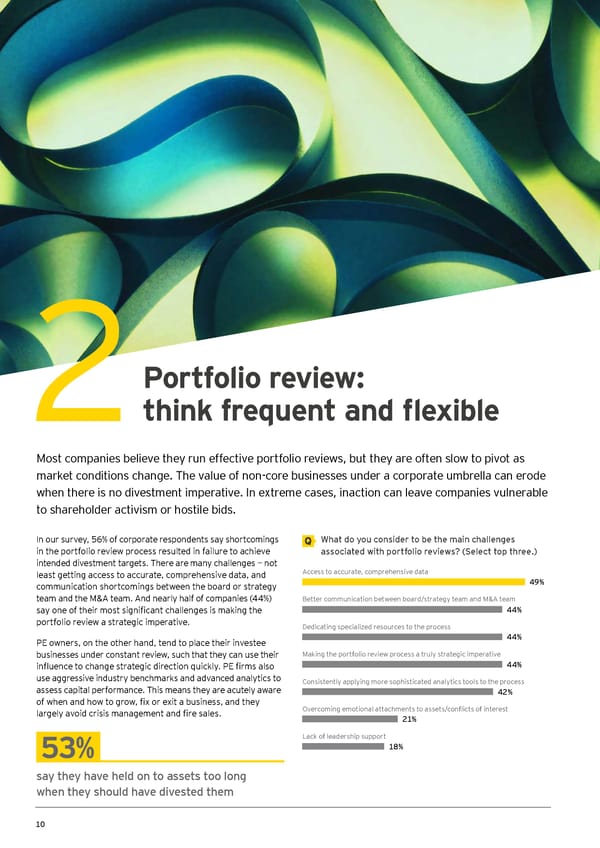Portfolio review: think frequent and flexible Most companies believe they run effective portfolio reviews, but they are often slow to pivot as market conditions change. The value of non-core businesses under a corporate umbrella can erode when there is no divestment imperative. In extreme cases, inaction can leave companies vulnerable to shareholder activism or hostile bids. In our survey, 56% of corporate respondents say shortcomings What do you consider to be the main challenges in the portfolio review process resulted in failure to achieve associated with portfolio reviews? (Select top three.) intended divestment targets. There are many challenges — not least getting access to accurate, comprehensive data, and Access to accurate, comprehensive data communication shortcomings between the board or strategy 49% team and the M&A team. And nearly half of companies (44%) Better communication between board/strategy team and M&A team say one of their most significant challenges is making the 44% portfolio review a strategic imperative. Dedicating specialized resources to the process PE owners, on the other hand, tend to place their investee 44% businesses under constant review, such that they can use their Making the portfolio review process a truly strategic imperative influence to change strategic direction quickly. PE firms also 44% use aggressive industry benchmarks and advanced analytics to Consistently applying more sophisticated analytics tools to the process assess capital performance. This means they are acutely aware 42% of when and how to grow, fix or exit a business, and they Overcoming emotional attachments to assets/conflicts of interest largely avoid crisis management and fire sales. 21% Lack of leadership support 53% 18% say they have held on to assets too long when they should have divested them 10
 Global Corporate Divestment Study Page 9 Page 11
Global Corporate Divestment Study Page 9 Page 11